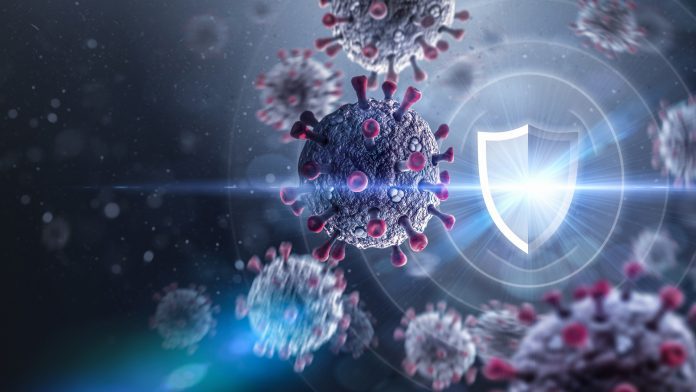
A new rapid blood test created by Mount Sinai can measure the extent and duration of immunity to COVID-19.
Researchers from Mount Sinai have developed a rapid blood test that analyses and quantifies the amount and duration of immunity from COVID-19. The test can monitor immunity and measure the effectiveness of current vaccines to provide critical data to create revaccination strategies for vulnerable individuals.
“The assay we have created has the ability to measure the population’s cellular immunity and broadly test the efficacy of novel vaccines,” said one of the study’s senior authors, Ernesto Guccione, PhD, Professor of Oncological Sciences and Pharmacological Sciences, at The Tisch Cancer Institute at Mount Sinai.
“We know that vulnerable populations don’t always mount an antibody response, so measuring T cell activation is critical to assess the full extent of a person’s immunity. Additionally, the emergence of SARS-CoV-2 variants like Omicron, which evade most of the neutralising ability of antibodies, points to the need for assays that can measure T cells, which are more effective against emerging variants of concern.”
The study was published in Nature Biotechnology.
The importance of T cell function
The test takes less than 24 hours to perform on a large scale. It measures the activation of T cells, which adapt to the immune response following COVID-19 infection or vaccination and protects against severe disease outcomes or death.
Retaining long-term immunity to COVID-19 and other infections is determined by antibodies and T-cell response. Many recent studies have illuminated the importance of monitoring T cell function in individuals who recovered or were vaccinated against COVID-19 to design vaccination campaigns. Yet, before the research carried out by Mount Sinai, this area was relatively unstudied due to technical challenges.
Monitoring immunity to COVID-19
The researchers, partnered with Duke-NUS Medical School, employed qPCR-based tests to measure immunity from COVID-19. The team focussed on two tests, qTACT and dqTACT test, to understand their usability on a large scale. The qTACT test was accurate and sensitive but had a longer processing time of 24 hours per 200 blood samples. The dqTACT test showed great accuracy and had a quicker processing time and cost.
“The assays presented here are based on the ability of SARS-CoV-2 T cells to respond to peptides covering different proteins of the virus,” said another senior author, Jordi Ochando, PhD, Assistant Professor of Oncological Sciences at the Tisch Cancer Institute at Mount Sinai and Assistant Professor of Medicine (Nephrology), and Pathology, Molecular, and Cell-Based Medicine at the Icahn School of Medicine at Mount Sinai.
“With the possibility of using different peptide pools, our approach represents a flexible strategy that can be easily implemented to detect the presence of T cells responding to different viral proteins. These T cells have an important role in protection from emerging mutant strains, thus immediately gauging the impact that viral mutations might have on cellular immunity.”
Megan Schwarz, a graduate student at Icahn Mount Sinai and the first author of the study, concluded: “Precise measurement of cellular responses underlying virus protection represents a crucial parameter of our levels of immune defence.”










